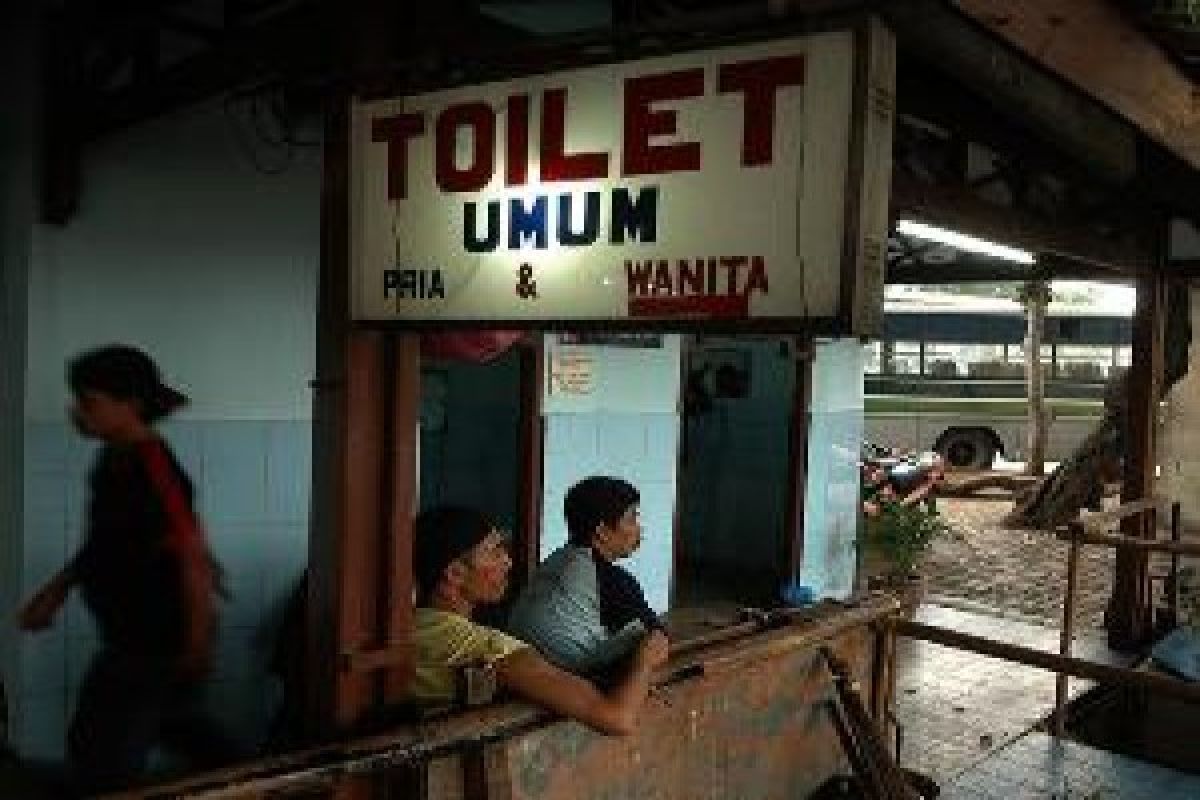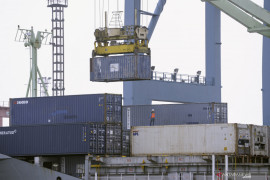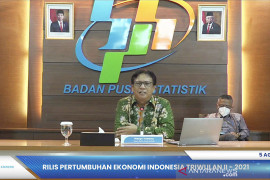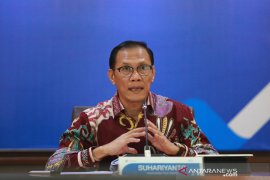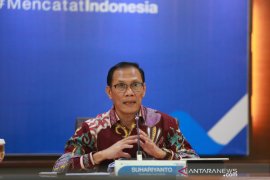Providing the tourists with clean toilets is an important investment for the tourism in Indonesia."Jakarta (ANTARA News) - Sanitation remains a large problem for around 100 million people in Indonesia, while 63 million others are still living without proper toilets that will lead to the outbreak of diseases and serious economic losses.
The absence of proper toilets is still forcing them to practice open defecation in the rivers, ponds, and sea which causes health problems and increases the cost of water treatment.
A World Bank study shows that Indonesia loses 2.4 percent of its Gross Domestic Product (GDP) annually due to inadequate sanitation, poor hygiene and lack of access to safe water with open defecation as on of the leading causes.
According to the study, untreated sewage emit some 6 million tons of human waste into water channels.
"Poor sanitation conditions lead to a high prevalence of fecal-borne diseases, such as typhoid and diarrhea, which in any two-week period afflicts 11 percent of Indonesia`s children, and each year these disease are linked directly to more than 40,000 deaths among Indonesian children under five," according to the study.
Speaking at a press conference on World Toilet Summit 2013 here on Monday, Indonesia Toilet Association (ATI) Chairman Naning Adiwoso said sanitation and clean water facility in Indonesia were still a great challenge.
Naning also noted that 63 million of Indonesian population, including around one million in Jakarta, practiced open defecation in the rivers.
"Unhealthy sanitation could potentially give rise to various diseases, and therefore it is important to promoting healthy sanitation for all parties," he said, adding that now the access to healthy sanitation could only be enjoyed by 55 percent of the people in Indonesia.
Lack of sanitation facilities and poor awareness of proper management of domestic waste-water, and the discharge of untreated waste into water systems is one of the most common sanitation problems in Indonesia.
Further, Naning said the Indonesian Toilet Association will hold World Toilet Summit 2013 at the Sunan Hotel in Solo city, Central Java, from October 2-4.
"World Toilet Summit is the only one event to talk about hygiene, health, sanitation, and the important of toilet itself," Naning said.
He added that people access to sanitation was not the responsibility of the central government alone because the regional governments also have their role to play.
Therefore he noted that the Indonesia Toilet Association was supported by Ministry of Tourism and Creative Economy, the Ministry of Public Works, and the Government of Surakarta to organize the the World Toilet Summit 2013 in Solo.
World Toilet Summit Indonesia press release said that themed "The Rural Meet the Urban Sanitation", the summit in Solo would empower the community to improve better sanitation to alleviate poverty, and to create healthy community in rural and urban areas.
It said the World Toilet Summit would be the unique and different from previous event.
It will consists of 2 days Training on Trainers as Pre Event, Welcome Dinner, The Summit; 2 days Plenary Session and one day Concurrent Tracks, Exhibition, Cultural Night and World Toilet Carnival.
Training on Trainers as Pre Event for World Toilet Summit will be held on September 30 - October 1, 2013, dedicated to trainers from government to private sectors in Indonesia.
Earlier, Jack Sim of World Toilet Organization said Indonesians were among 5 billion of world population who have not gotten access to good sanitation.
He said lack of better sanitation had a close relationship with poverty, and therefore the government and the people should play their role to overcome the problem.
Jack noted t hat World Toilet Summit has been held 12 times in 10 countries member of World Toilet Organisation (WTO), such as Singapore, South Korea, Taiwan, China, Ireland, Russia, Thailand, India, USA and South Africa.
"This year, together with Indonesia Toilet Association (ATI), we will hold the similar summit in Solo, Central Java," he said.
Meanwhile, the Director General for Society Empowerment and Tourism Destinations of the Ministry of Tourism and Creative Economy, Bakri, said clean and healthy sanitation is an important investment for Indonesian tourism.
"Providing the tourists with clean toilets is an important investment for the tourism in Indonesia," Bakri said in a press conference on World Toilet Summit 2013.
He said clean toilets and adequate sanitation will be included in the national campaign of Tourism Awareness or "Sadar Wisata" because it was considered important in building tourism destinations in Indonesia.
Bakri explained that many tourists would like to visit tourism attractions and restaurants with good sanitation.
According to him, good sanitation would also have a positive impact on the economic value.
"Therefore we will highly appreciate the public areas such as international airports, zoos, recreation parks, and home-stays which have clean toilets and good sanitation," he said.
When receiving participants of the National Sanitation Jamboree at the State Palace here on June 28, First Lady Ani Yudhoyono also called for a better public awareness concerning sanitation in Indonesia.
The fist lady said at the time that President Yudhoyono and she had paid a lot of attention to the sanitation development because it was a serious problem facing many nations in the world.
Therefore she said the central government had asked the regional governments through governors, mayors and district heads to promote sanitation improvement.
(Uu.O001/B003)
Reporter: Otniel Tamindael
Editor: Priyambodo RH
Copyright © ANTARA 2013
